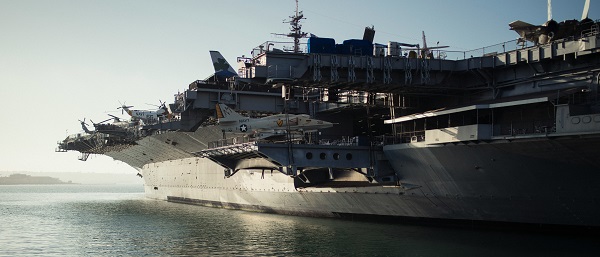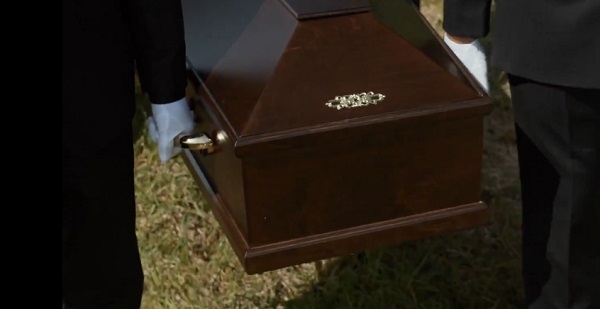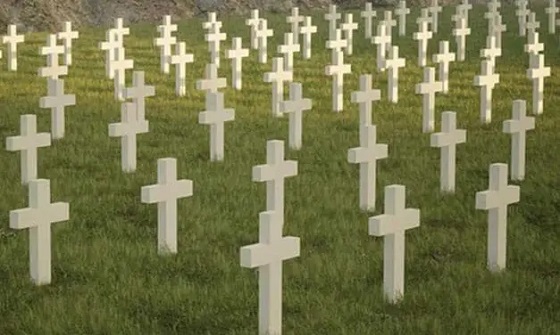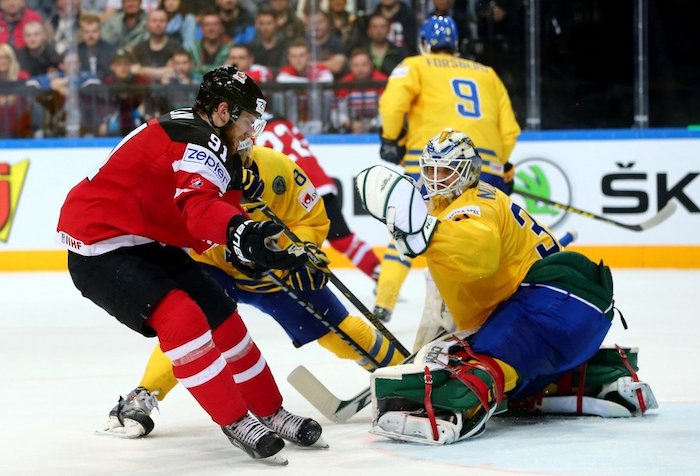armed forces
Top Trump Military Official Takes Aim At Absurd Bloat In Navy


From the Daily Caller News Foundation
By Wallace White
U.S. Navy Secretary John Phelan took aim at the rampant waste in the Navy during a Wednesday posture hearing with the House Appropriations Committee.
Phelan and acting Chief of Naval Operations Adm. James Kilby laid out the Navy’s bloated acquisitions contracting system and inefficient workforce, which employs 56,000 people but only processes two contracts a month per employee on average. Phelan, a former Wall Street executive, stressed his mission is to cut waste and utilize his unorthodox background to promote efficiency in keeping America’s Navy ready to fight and win wars.
Phelan said the Navy processed a total of 217,000 contracts in 2024, with an average employee processing 34 in total.
“I’ll also be honest, when I look at our contracting, it’s poor,” Phelan said during the hearing. “We don’t control our [intellectual property]. We can’t repair stuff. We don’t have very good penalties built in for lack of performance. These are all things we are going to really try to change.”
Phelan already slashed a slew of Navy programs in April in the name of cost savings, worth a grand total of $568 million, according to DefenseScoop. In the hearing, he expressed interest in shrinking the overall workforce while maintaining vital employees.
The secretary also pledged to have the Navy pass a financial audit, even as the Pentagon failed its seventh consecutive audit in 2024. The Defense Department’s budget is set to balloon to over $1 trillion in 2026 as the various branches of the armed forces jockey for funding.
“Accountability is not just a regulatory requirement. It is the bedrock upon which we will build a stronger, more efficient Navy and Marine Corps,” Phelan said in the hearing. “Under my leadership, the Department of the Navy will achieve a clean audit, following the example set by the Marine Corps, which has completed two consecutive unmodified audits.”
While the Navy struggles with overspending and a bloated contract system, it is also struggling to put ships in the water at a time when China is being aggressive in the Pacific Ocean.
The Navy has struggled to maintain its existing ships, while new ships have been plagued by massive delays, with some contractors extending their deadlines for ship delivery by up to three years. China maintains the upper hand in military shipbuilding, surpassing the U.S. Navy’s total ship count in 2020 with 360 ships compared to just 296 in the U.S. fleets, according to a January Congressional Research Service (CRS) report.
Phelan and Kilby aim to shift the Navy’s focus towards shipbuilding to fulfill President Donald Trump’s executive order calling for increased ship production.
“I will lead this department with three focus areas that will guide our Navy and Marine Corps: strengthen shipbuilding and the maritime industrial base, foster an adaptive, accountable, and innovative warfighter culture, improve the health, welfare, and training of our people,” Phelan said during the briefing.
armed forces
Canadian veteran says she knows at least 20 service members who were offered euthanasia

From LifeSiteNews
Canadian Armed Forces veteran Kelsi Sheren told members of the House of Commons that he has proof of veterans being offered assisted suicide.
Canada’s liberal euthanasia laws have made the practice so commonplace that a Canadian Armed Forces (CAF) veteran has said she knows and has “proof” that no less than 20 of her colleagues were offered unsolicited state-sponsored euthanasia.
Kelsi Sheren, who is a CAF veteran, recently told MPs in the House of Commons veterans affairs committee that “over 20 veterans have confirmed being offered MAID.”
“I have the proof, and I have proof of more,” Sheren told the committee during an October 28 meeting.
Conservative MP Blake Richards asked Sheren if she was willing to provide them with evidence to affirm her allegations.
Sheren noted how the 20 veterans have given written testimonies, or actual audio recordings, of when they were offered what in Canada is known as Medical Assistance in Dying (MAiD).
“We also have other individuals who are too afraid to come forward because Veterans Affairs has threatened their benefits,” she told MPs, adding that some other veterans were even offered non-disclosure agreements along with “payouts if they were to take it.”
Veterans Affairs Canada (VAC) has told the media its “employees have no role or mandate to recommend or raise (MAid). ”
As reported by LifeSiteNews, this is not the first time reports of CAF veterans saying they were offered MAiD.
Indeed, as reported by LifeSiteNews, it was revealed last year that the federal department in charge of helping Canadian veterans appears to have purposefully prevented the existence of a paper after scandalous reports surfaced alleging that caseworkers had recommended euthanasia to suffering service members.
LifeSiteNews recently published a report noting how a Canadian combat veteran and artillery gunner revealed, while speaking on a podcast with Dr. Jordan Peterson, that the drugs used in MAiD essentially waterboard a person to death. Assisted suicide was legalized by the Liberal government of former Prime Minister Justin Trudeau in 2016.
A new EPC report has revealed that Canada has euthanized 90,000 people since 2016.
As reported by LifeSiteNews last week, a Conservative MP’s private member’s bill that, if passed, would ban euthanasia for people with mental illness received the full support of the Euthanasia Prevention Coalition (EPC).
armed forces
Why we keep getting Remembrance Day wrong

This article supplied by Troy Media.
 By Pat Murphy
By Pat Murphy
Remembrance Day once honoured soldiers for their courage and conviction, but the values they fought for have long since been rejected
With the untimely death of Tim Cook on Oct. 25, Canada lost a valued historian. Military history was Cook’s oeuvre, and the First World War was a particular specialty. His ability to marry academic rigour with accessible storytelling made him a relatively rare bird.
Naturally, Cook wrote about battles, military commanders and political leaders. But he was also fascinated with ordinary soldiers, scouring the archives for personal letters from the front and other material to develop an understanding of what
motivated the soldiers and how they managed the day-to-day horrors of prolonged trench warfare in an environment characterized by cold, mud, lice and rats, not to mention the ever-present spectre of violent death.
Camaraderie was critical. To quote from an interview with Cook: “one of the ways they cope is to create their own tribe, their own group that is insulated from everyone else.”
All of which brings us to Remembrance Day.
Although formally recognized as “remembrance for the men and women who have served, and continue to serve our country during times of war, conflict and peace,” both the origins and iconography of Remembrance Day relate to the First World War. There’s the two-minute silence at the 11th hour of the 11th day of the 11th month to observe the formal end of hostilities in 1918; the playing of the Last Post; and, of course, the ubiquitous red poppies.
The conflict wasn’t post Confederation Canada’s first military endeavour, but its scale dwarfed anything that came before it, and only the subsequent Second World War was a comparable event. Some 620,000 Canadians served between 1914 and 1918 and approximately 60,000 were killed. To get a sense of scale, adjust the fatalities for population growth and it would be comfortably north of 300,000 today.
In War: How Conflict Shaped Us, Margaret MacMillan notes the long history of cultures elevating personal characteristics associated with battlefield success, honouring bravery, endurance, toughness and the willingness to face death. It’s been pretty much a universal characteristic.
Nor should we think of war as only a male activity driven by patriarchal social structures. While it’s true that military hierarchies are traditionally male and the fighting in most wars has been done largely by men, women have always played
a key role in reinforcing the culture.
We, though, have become somewhat uncomfortable with the warrior ethos. Take, for instance, In Flanders Fields. Written in 1915 by Guelph’s John McCrae, the poem has acquired iconic status over the decades. It’s haunting and melancholy, sufficiently so to grab at your throat and send shivers down your spine. It’s also become inextricably intertwined with Remembrance Day.
There is, however, a small problem. While we now view the First World War as senseless carnage, In Flanders Fields has a very different perspective. As the third and final stanza makes unequivocally clear, the poem’s message isn’t about the war’s futility—it’s about the need to keep the faith and carry on to victory.
Much the same can be said about the music associated with the era. Those songs written in recent decades stress the sadness and futility of it all, but the actual popular music of the time was cheerful, patriotic and resolute.
Rather than seeing the soldiers as they were, we insist on recasting them as victims. Stripping them of personal agency, we ignore the fact that 80 per cent of them were volunteers, people who, for various reasons, chose to go to war.
So what motivated them?
Many were surely lured by the male affinity for adventure, compounded by patriotic fervour and enthusiastic loyalty to the concept of king and empire, however incomprehensible or disreputable the latter may now seem to us. There was also the buzz of an environment where the usual social norms regarding life, death and destruction had either vanished or become significantly attenuated. In her book, MacMillan documents how some found the whole experience “vastly exciting.”
Acknowledging this shouldn’t be confused with cheerleading. As I’ve previously written on more than one occasion, I think Britain’s reluctant decision to enter the First World War was a tragic error on many fronts. And if Britain had stood aside, Canada wouldn’t have been involved.
But respectfully remembering those who died shouldn’t be confused with turning them into something they were not. They weren’t hapless victims—they were people with beliefs and values of their own, even if we no longer look at the world in the same way they did.
Troy Media columnist Pat Murphy casts a history buff’s eye at the goings-on in our world. Never cynical – well, perhaps a little bit.
Troy Media empowers Canadian community news outlets by providing independent, insightful analysis and commentary. Our mission is to support local media in helping Canadians stay informed and engaged by delivering reliable content that strengthens community connections and deepens understanding across the country.
-

 Energy2 days ago
Energy2 days agoCarney bets on LNG, Alberta doubles down on oil
-

 Alberta2 days ago
Alberta2 days agoAlberta on right path to better health care
-

 Indigenous2 days ago
Indigenous2 days agoTop constitutional lawyer slams Indigenous land ruling as threat to Canadian property rights
-

 Alberta2 days ago
Alberta2 days agoCarney government’s anti-oil sentiment no longer in doubt
-

 Alberta2 days ago
Alberta2 days agoAlberta Emergency Alert test – Wednesday at 1:55 PM
-

 Alberta1 day ago
Alberta1 day ago‘Weird and wonderful’ wells are boosting oil production in Alberta and Saskatchewan
-

 Business1 day ago
Business1 day agoCanada is failing dismally at our climate goals. We’re also ruining our economy.
-

 Health2 days ago
Health2 days agoSPARC Kindness Tree: A Growing Tradition in Capstone






